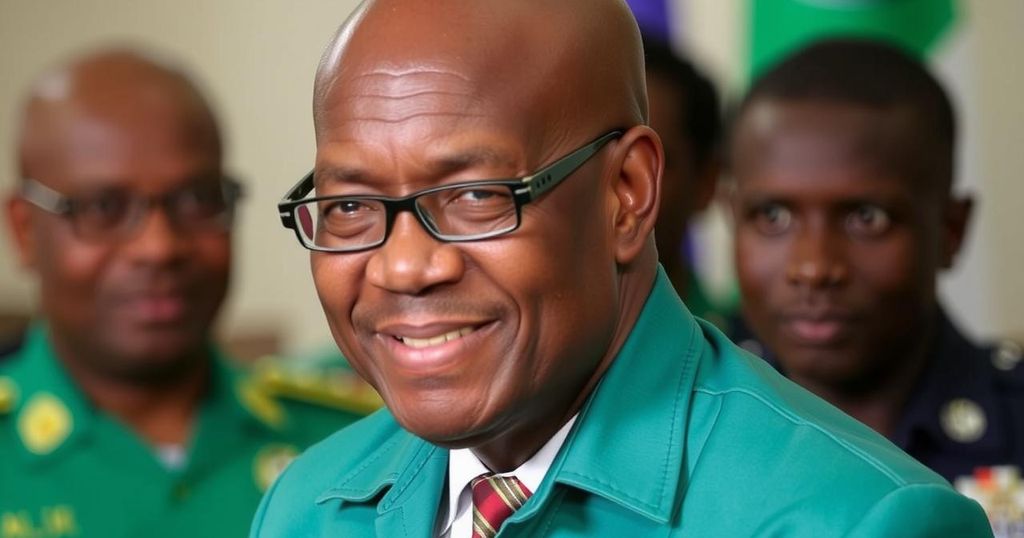Uganda’s Operation Shujaa in eastern DRC, aimed at combating the ADF, has led to both military gains and criticisms of Uganda’s potential support for the M23 rebel group. Despite some successes reducing ADF threats near the Ugandan border, the group has adapted and expanded its attacks into new regions. Uganda’s strategic interests, particularly economic, are increasingly entwined with its military actions, necessitating a careful balancing act in the volatile region.
Three years after Ugandan troops entered the eastern Democratic Republic of Congo (DRC) to combat the Allied Democratic Forces (ADF), their mission, named Operation Shujaa, has produced mixed outcomes. While military action has pushed the ADF from significant locations and provided a measure of security to some communities, allegations of Uganda’s covert support for the M23 rebel group cast doubt on Uganda’s intentions. The ADF persists as a lethal entity, having expanded its operational territory, demonstrating both resilience and brutality despite military pressure from Ugandan forces.
In areas near the Ugandan border, residents have experienced a decrease in violence, with curfews lifted and previously dangerous routes now considered safe. Schools have reopened and some ADF leaders have been neutralized, as local military efforts have curtailed the group’s capacity to launch large-scale attacks. Brigadier General Felix Kulayigye from the Ugandan military emphasized that their operations have degraded the ADF’s ability to operate freely. However, recent developments indicate that the ADF has expanded its reach into new regions, deploying previously untouched areas, indicating a complex and evolving security landscape.
Although security forces have gained ground, the ADF’s capacity to retaliate against military incursions by targeting civilians remains alarming, as highlighted in various reports. The potential connection between Uganda and the M23 rebels, raised by UN experts, suggests that Uganda’s operations might be strategically aimed at safeguarding its interests rather than solely combating the ADF. With Uganda maintaining close ties with Rwanda and pursuing infrastructural developments in the region, the balance of power and influence remains delicate and fraught with potential regional tensions.
Economically, Operation Shujaa is essential for Uganda, aiding in the monitoring of lucrative corridors for gold trade and ensuring stability for infrastructural investments. Observers have noted Uganda’s necessity to navigate the complex dynamics of regional alliances while securing its economic foothold in eastern DRC. As Uganda continues to address its interests amidst fluctuating circumstances, maintaining a focused strategy that prioritizes its economic imperatives will be crucial for its future engagements in the DRC.
The ongoing military engagement of Uganda in the Democratic Republic of Congo has shaped both security and economic landscapes within the region. Since 2019, Uganda has engaged in direct action against the ADF, linked to the Islamic State, aiming to eradicate an insurgency that has plagued eastern DRC for years. However, allegations of Uganda’s dual strategies, including potential support for opposing rebel forces such as M23, pose significant ethical and strategic questions regarding its military and economic objectives in the region. The geopolitical context is further complicated by Uganda’s desire to protect its economic investments in the DRC, notably in gold trading, amidst rising tensions with neighboring Rwanda.
Uganda’s military intervention in the DRC has yielded both progress and challenges, revealing a complex interplay of security concerns and economic ambitions. Despite successes against the ADF, allegations of double dealings have raised substantive questions regarding Uganda’s long-term motives in the region. As geopolitical tensions with Rwanda persist, Ukraine must navigate a path that secures its own economic interests while contributing to regional stability. The evolution of this situation remains critical for observers of East African security dynamics, warranting continued analysis and response by regional and international stakeholders.
Original Source: www.rfi.fr







